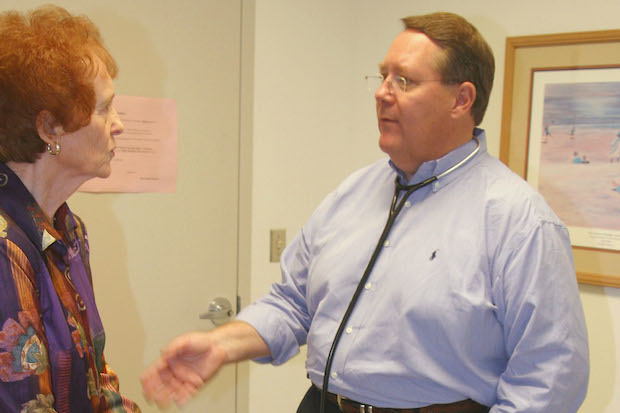Obesity. Everyone’s talking about it. It’s bad. Gives you diabetes, heart disease, and it makes you fat. And if you’re a newspaper, the chief executive of NHS England will tell you that it renders healthcare professionals less capable of doing their jobs. ‘Fat docs ordered to slim by NHS Chief’ cried the Sun. I didn’t get the memo. He actually told the papers, not the people. But let’s forget about just how insulting that is. Let’s forget that obesity is part of a big lifestyle puzzle, and it’s activity and nutrition doctors should be promoting, not just weight loss. Let’s say he came to us with the suggestion that we should set an example to our patients by demonstrating the healthy lifestyles we advocate. Is that so bad? It’s certainly one of the ideas that motivated me to try and fix my own weight problems, with mixed results.
Whose fault was my BMI? My parents? My horrible PE teacher? Metabolism? Russia? No, it was me. I like food, I don’t like exercise. I knew I needed to lose weight, but knowledge doesn’t make that happen – if it worked like that, smoking would be long gone. Only when all the planets align – knowledge, responsibility, psychology, motivation, persistence – will people truly change their lifestyles. We could make it easier for them (I can’t think how though, maybe the hospital could have a gym rather than a Burger King? Or maybe have a word with the food industry about what’s marketed as healthy?), but ultimately people must change themselves. It’s not doctors’ responsibility to make people lose weight any more than it is to follow them around making sure they look both ways before crossing the road.
Suggesting doctors must conform to a ‘healthy’ image says that we can’t be human or have our own struggles. Accountants have money problems, dentists have fillings, and so on. I actually found it harder addressing obesity with patients after I lost weight. I’d often be greeted with the defensive eye roll of someone who felt they were being judged by someone who understood nothing about their plight. I would try telling them of my own struggles – that I knew how hard it was – but they would respond with the same skepticism that I would have exuded in the past. Maybe we need to understand more about why this is such a sensitive issue? Why is telling someone their blood pressure is high so easy, but telling them their weight is high so uncomfortable?
The fact is, if someone has a problem, they need advice on how to deal with it. And this is where a significant issue lies. Should this be from doctors? Or should people be able to go straight to dieticians and weight management/gym referral services? If you want doctors to be better at advising people on nutrition they should be better trained on how to do it. Maybe the way we regard obesity is too rigid and over-simplified? Different things work for different people, because people are different. The ever delightful Katie Hopkins has just gained three stone in order to demonstrate how easy it is to lose weight. Which is just as ridiculous as me saying I’ll lose weight in order to show you how easy it is to put it back on, and demonstrates a total lack of understanding of the complexity of the issue that isn’t limited to mouthy minor celebrities. Perhaps the best thing doctors can say to patients is ‘It’s really hard, but do your research, put the effort in, if it’s not working change it, and you can do it.’ But one thing I’ve never tried doing to help patients lose weight is calling them fat in a national newspaper.






Comments